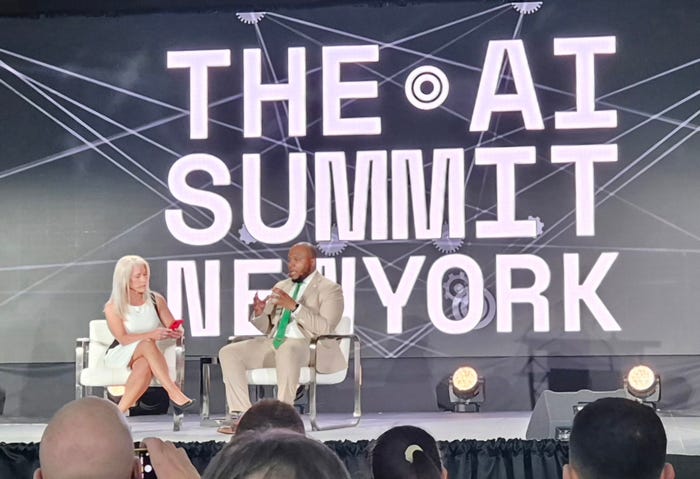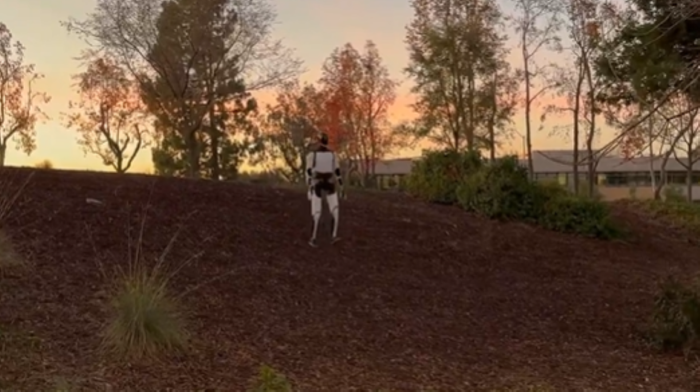How Industry 4.0 Will Change Your Job
Get ready: The Internet of Things is poised to disrupt your career.
January 30, 2017

By IOT Content Manager
In 2013, when the Internet of Things was in the beginning throes of going mainstream, an Oxford study proclaimed that 47% of U.S. jobs could be replaced by algorithms. While no one knows what the employment landscape will look like in a decade, our ability to drive and track productivity will almost certainly advance by leaps and bounds. There’s reason to start preparing now for your job of the future.
Those motivated out of fear tend to cling to the past rather than adapt. Earlier this year, for instance, New York taxi drivers are working to ban self-driving cars for half a century. It is likely that we will see more examples like this in the near future. Many people throughout the world hate Silicon Valley-style disruption, as Newsweek observed last year, and are inclined to resist it and work to preserve the status quo.
Related: Why the IIoT Demands More Flexibility from the Workforce
Rejecting new workplace technology has a long history, of course, dating back to the Luddites—the English textile workers who protested the use of technology in the 19th century. Some of these protestors would disguise their identities, slip into factories, and use massive metal sledgehammers to destroy textile machines. At best, that only slowed things down.
Yes, the debut of textile machines, assembly lines and attrition of lower-skilled jobs negatively affected some workers. But the Industrial Revolution and the Machine Age would go on to vastly improve productivity. The cotton gin alone was some 50 times more efficient at removing cotton seeds than humans were at the same task. And such technology laid the groundwork for Ford’s mass production of the automobile decades later.
Preparing for the Next Revolution
Now, we are arguably in the early stages of a new industrial revolution, or Industry 4.0, to cite the German theory for the next industrial upheaval. (In case you were wondering, the first three revolutions were powered by water and steam power, electric power, and computing technology, respectively). Cyber-physical systems are the backbone of the fourth industrial revolution. In any case, technologies such as connected sensors, cloud and virtual and remote software offer vast new potential to transform everything from the factory floor to logistics.
Given the power of such technologies, it is easy to see how factory workers must have felt in the early days of the first Industrial Revolution: threatened.
The basic fear now is the same as it was then: Humans are making themselves obsolete.
A recent piece in Inc. magazine echoes that sentiment, focusing on how automation could replace 5 percent of workers globally. The shift, however, could be gradual rather than overnight:
A recent report by McKinsey Global Institute… says automation technology will replace about 5 percent of all jobs globally, but it will take decades. In addition, the report found that 49 percent of all tasks currently being done by workers, from clerks to CEOs, can be automated by 2055 with technology that already exists today.
But, obviously, we did not make ourselves obsolete the first time. It is doubtful that we’ll design ourselves out of a job the second time, either.
Similar Skills, Different Medium
There will be new opportunities created as the Internet of Things takes hold. The worker who uses her hands to mold a specific engine part will soon do the same thing in an augmented or virtual reality space. The employee placing warehouse boxes on extremely tall stacks will use a joystick to aim the forklift.
The great part is that current job skillsets may just need an upgrade rather than a complete overhaul. For instance, augmented reality technology means that we will have a layer of computer technology over our current work environment, so the focus could be on integrating the interface into your job versus starting from scratch.
In other words, Industry 4.0 isn’t about the destruction of the previous eras. It is adapting previous tools, infrastructure and skills to take full advantage of the Internet of Things.
The question shouldn’t be what will be lost as we enter Industry 4.0 as there is little to be gained from lamenting the inevitable. Instead, we should be asking how we can upgrade what we already have, in both staff skill and in manufacturing processes, to make the most of our newly connected world.
You May Also Like






